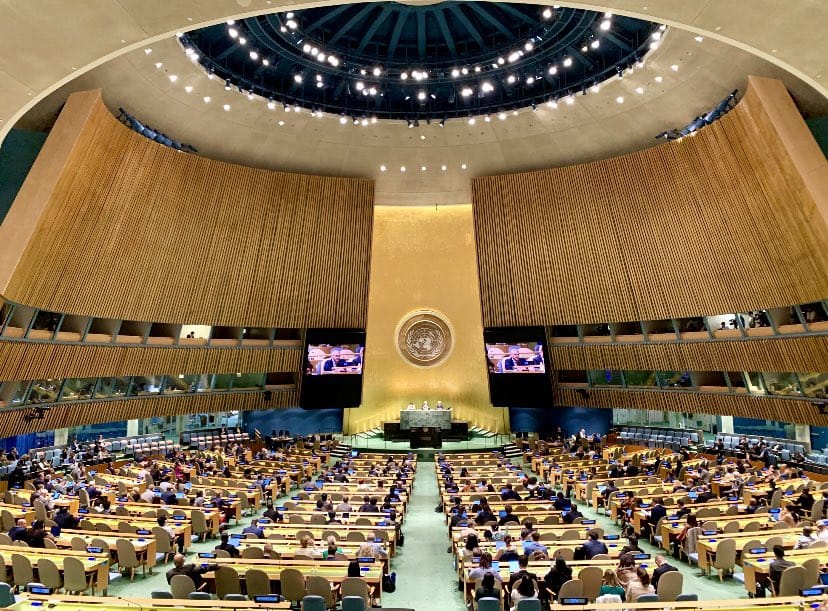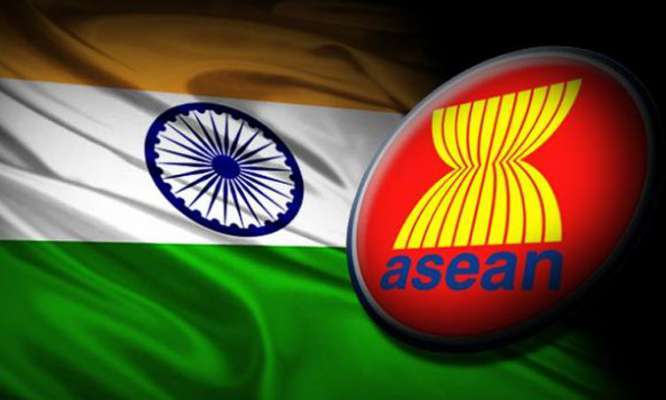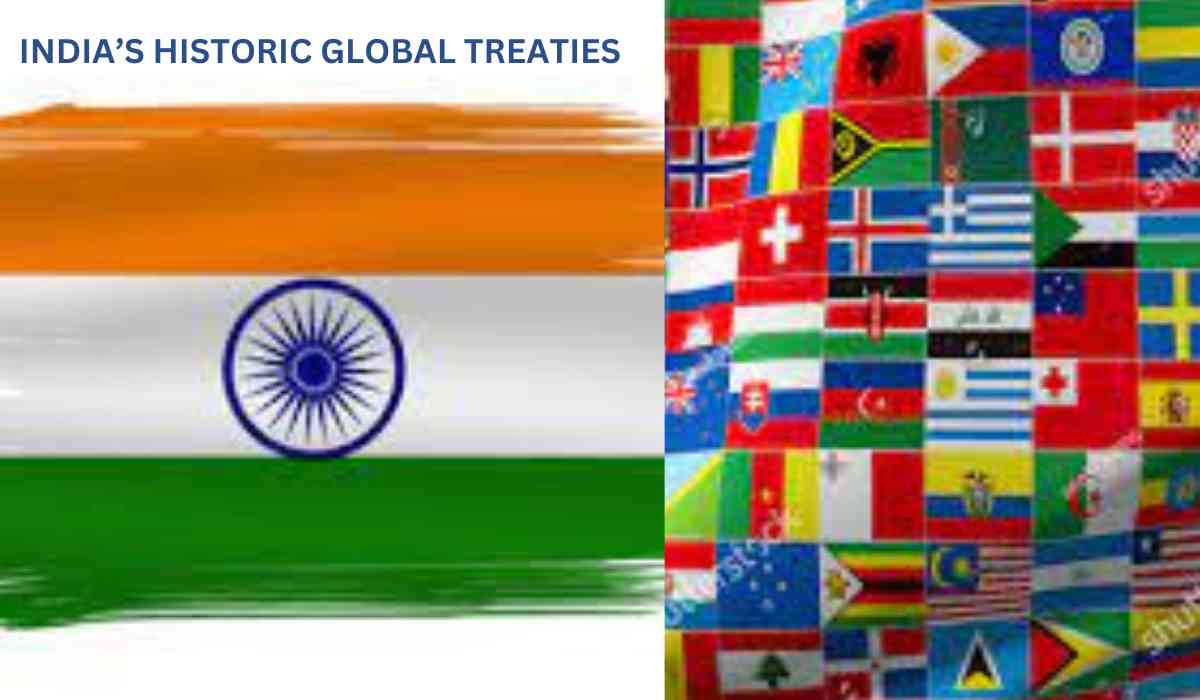In Present times, when the world is in a challenging situation like the Russia-Ukraine war, and the Israel-Hamas conflict, all we can wish for is Peace. Peace, on a global stage is often very unattainable, when different nations having different interests interact with one another often leading to conflicts and controversies. Treaties or specifically "Global or International" treaties represent an agreed pact or an agreement under international law to bring together different countries on relevant matters and promote negotiation and diplomacy to ensure peace and security rather than hostility. These treaties are of two types Bilateral, involving two nations and Multilateral, involving more than two nations. If we look into history, the treaty which I find is one of the most initial treaties that made a significant impact on the world was the Treaty of Westphalia, 1648 which ended the thirty years war and led to the establishment of nation states and Sovereignty.
In the Indian context we will delve into the important global treaties of Independent India. As mentioned in Article 51 of the Indian Constitution I.e the state shall endeavour to Promote International Peace and Security, India, a rising power of the Asian region and often praised for its diplomacy has entered into several treaties with many countries over a wide range of domains from climate change to arms control. In this editorial, we will explore India's major historic global treaties that will help us understand India's foreign policy approach in these 76 years.
The Paris Agreement - India being vocal and addressing about the issue of Climate Change
Climate has now become a serious issue but continues to get neglected by our world leaders. The treaties legally binding countries on Climate Change thus show us a ray of hope. The Paris Agreement is one such treaty, it was signed in 2015 and is also known as UN CoP21. The primary objective is to restrain the rise in the Earth's average temperature, aiming to keep it significantly below a 2°C increase from pre-industrial times.
India has been very vocal about Climate Change, with the Indian Prime Minister addressing the issue of climate change on various international platforms. India too along with other nations ratified this treaty demonstrating India's commitment to combat climate change and transitioning towards a more sustainable future. With ambitious targets for reducing greenhouse gas emissions and promoting renewable energy, India showcased its dedication to environmental responsibility, showcasing a potential blueprint for other emerging economies. However, the US has backed out from this treaty questioning the significance of this treaty.

The Non Proliferation treaty - India's non ratification
This treaty came into force in 1970, and was considered as a global effort to prevent the spread of nuclear weapons and pursuit of Nuclear disarmament. This prevented any countries from holding or making nuclear weapons except the "elites" who already have nuclear weapons including the US, USSR. Several countries signed this treaty but India refused to ratify this treaty as it considered this treaty to be highly discriminatory in Nature. India faced a lot of criticism and hostility from the west due to this. I consider this treaty to be historic due to India's stance which beautifully highlighted India's balance between National security and international concerns. India at that time was ready for nuclear disarmament but the treaty only bound the "global south" and not the 'elites", which India opposed.

ASEAN-India Free trade Area
If we come into the trade domain, India has several bilateral trade agreements with other countries. The most significant Trade agreement for India would be ASEAN-India free trade as it helped India and ASEAN both to strengthen their economic ties in Asia-pacific region. ASEAN is a regional organisation including east asian nations. India previously didn't have any economic ties with the east part of Asia but after PM modi's initiative of Look east policy, India worked towards developing important ties with east asian countries. "Trade" agreements are as important as "Peace agreements" because the economy is something that plays an important role in making country a superpower. Moving on to other important trade agreement that include India ratifying the World Trade organisation and the Regional Comprehensive Economic Partnership (RCEP). India with mutual cooperation with other nations have now emerged as the world fastest growing economy.

Indus Water Treaty : A bilateral Treaty between India and Pakistan
India and Pakistan seem to always get involved in conflicts either on borders or waters. To resolve the "water" issue India signed the Indus water treaty with Pakistan, our very own not so friendly neighbour in 1960 fixing and delimiting the rights of both India and Pakistan regarding the utilisation of the waters of the Indus River system. Interestingly, this treaty was brokered by the World Bank. Ultimately, the three eastern rivers Ravi, Beas and Satluj were allotted to India and the three western rivers - Chenab, Jhelum and Indus, though Indus sounds like India, were allowed to Pakistan. India and Pakistan have several treaties worth of importance. India and Pakistan's relations are always on verge of breakup, so these treaties are signed with the aim to restore these ties.

In my concluding words, I want to highlight how India has managed to address climate change, promote economic growth through trade agreements, and manage regional conflict with a strong stance on a global stage. There are way more than these four treaties that India has signed and ratified including the United Nations Charter in 1949. Overall, we came to know about India's foreign policy approach that emphasises cooperation, engagement and sustainability but also raises a voice for the "global south".
Image sources : X, previously Twittter
© Copyright 2023. All Rights Reserved Powered by Vygr Media.


























